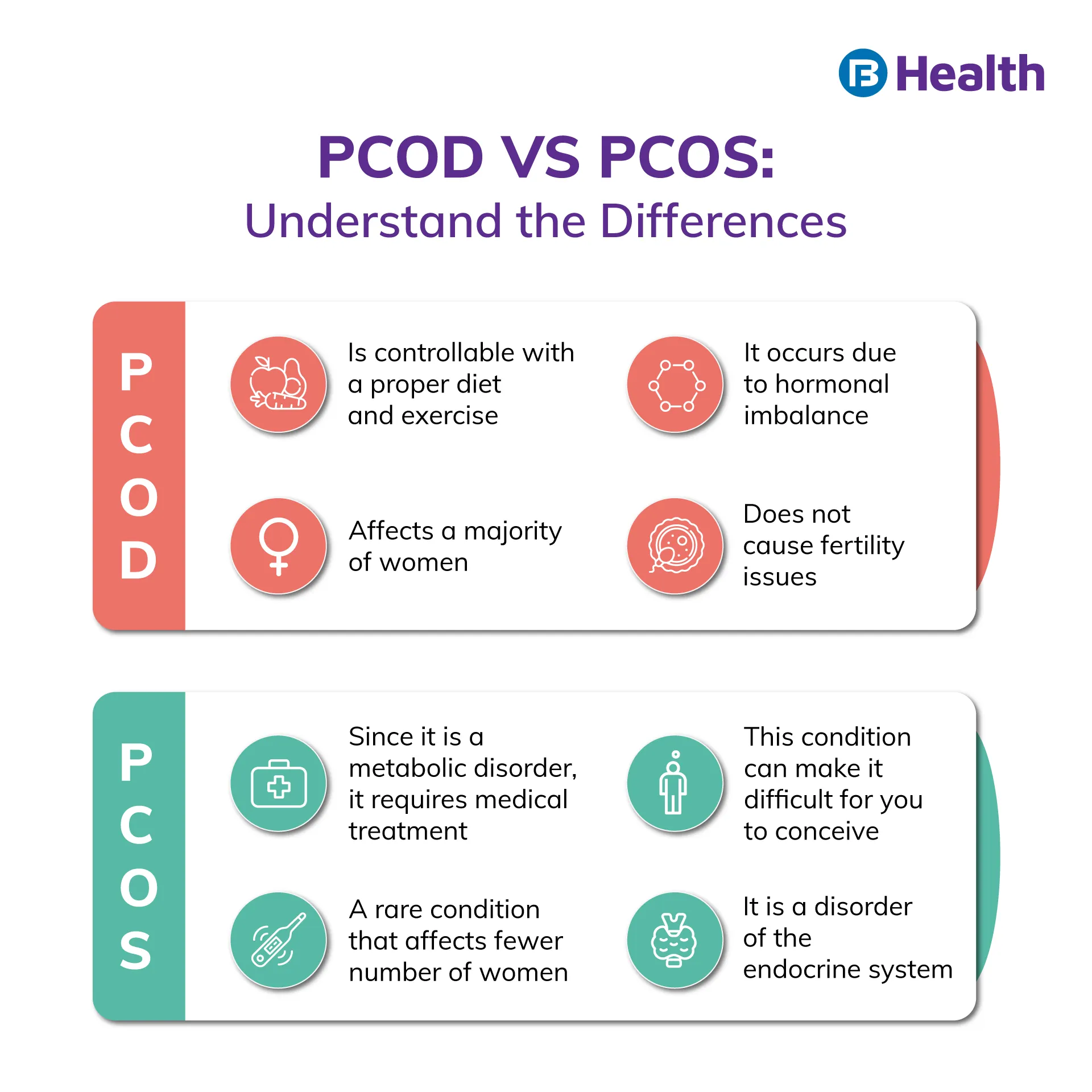Gynaecologist and Obstetrician | 10 min read
Cervical Cancer: Causes, Symptoms, Prevention and Treatment
Medically reviewed by
Table of Content
Key Takeaways
- Experiencing pain during sex is one of the cervical cancer symptoms
- Pap test is a common cervical cancer screening test you should undergo
- Cervical cancer treatment is possible with the help of surgery or radiation
Cervical cancer is a kind of cancer that arises in the cells of the cervix, the descending portion of the uterus that links to the vagina. Numerous strains of the human papillomavirus (HPV), a sexually transmitted disease, play a key role in causing most cervical cancers.
Cancer is a condition in which some of your body’s cells begin to grow in an uncontrolled manner. If not detected early, it can spread to other parts of your body as well. When such changes in cell growth occur in your cervix, it causes cervical cancer. The cervix is present at the lowermost part of the uterus and connects the vagina with the uterus. If you do not undergo a cervical cancer screening at the right time, it can spread to deeper tissues of your cervix and affect other vital organs like your liver, bladder, and rectum.
Around 29% of women in India are affected by cervical cancer [1]. Many confuse this condition with uterine cancer. Read on to know more about cervical cancer symptoms and how it differs from uterine cancer.
Cervical Cancer Early Symptoms
Early-stage cervical cancer commonly produces no signs or symptoms. It is only in the advanced stage that you experience certain symptoms that may indicate cervical cancer. The following are some of the glaring signs or symptoms:
- Bleeding from the vagina after intercourse
- Heavy bleeding between periods or after menopause
- Heavy watery or bloody vaginal discharge with an unpleasant odor
- Pain in the pelvic region
- Pain and discomfort at the time of intercourse
Cervical Cancer Symptoms
If cervical cancer is in the early stage, you may show no obvious symptoms and signs. When it advances, you may have symptoms such as:
- Pain in your pelvic regions
- Presence of watery vaginal discharge with traces of blood in it
- Bleeding of vagina in between the period cycle, after intercourse or post menopause
- Feeling uncomfortable during intercourse
- Strong odor in vaginal discharge
In case the cancer spreads to other parts, you may also experience the following symptoms:
- Bone pain
- Kidney failure
- Trouble in urinating
- Lack of appetite
- Loss of weight
- Swollen legs
- Fatigue

Cervical Cancer Stages
Working out the various stages of cancer is extremely important because it allows an individual to choose an appropriate type of treatment and also allows them to trace how far cancer has spread and whether it has anchored at nearby organs of the body.[3]
Stage 0
During this stage, precancerous cells are present inside the body.
Stage 1
During this stage, cancer cells develop from the surface into deeper tissues of the cervix and conceivably into the uterus and nearby lymph nodes.
Stage 2
During this stage, cancer moves beyond the cervix and uterus but not as far as the walls of the pelvis or the descending part of the vagina. It may or may not impact nearby lymph nodes.
Stage 3
During this stage, the cancer cells are present in the descending portion of the vagina or the walls of the pelvis, and they may obstruct the ureters, the tubes that carry urine from the bladder. It may or may not involve nearby lymph nodes.
Stage 4
In the last and final stage, cancer impacts the bladder or rectum and extends out of the pelvis. It may or may not affect the lymph nodes. Later, in stage 4, it will disperse to remote organs like the liver, bones, lungs, and lymph nodes.
Cervical Cancer Causes
Cancer is the consequence of the disorderly division and expansion of abnormal cells in the body. Most of the cells in our body have a set lifespan, and when they die, the body forges new cells to supersede them.[4]
Abnormal Cells Can Have Two Issues:
- They do not die
- They keep on dividing
This forces the excess buildup of cells, which ultimately comprises a growth commonly known as a presumably cancerous tumor. Yet, certain risk factors might boost the chance of conceiving cervical cancer. These include:
- HPV: More than 100 different types of HPV occur, among which at least 13 may cause cervical cancer.
- Having multiple sexual partners or becoming sexually active prematurely: The transmission of cancer-causing HPV types always occurs due to sexual contact with a person who has HPV. Females who maintain multiple sexual partners commonly have a higher risk of HPV infection. This raises their risk of developing cervical cancer.
- Smoking: This raises the probability of developing cervical cancer, including other types.
- A fragile immune system: The risk of cervical cancer is higher in those with HIV or AIDS and in people who have undergone a transplant, compelling the use of immunosuppressive medicines.
- Birth control pills: Prolonged usage of certain contraceptive pills also increase the risk of developing this ailment in females.
- Additional sexually transmitted diseases (STD): Chlamydia, gonorrhea, and syphilis increase the risk of acquiring cervical cancer.
- Socio-economic status: Cervical cancer rates seem to be higher in areas where income is low.
Cervical cancer originates when your tissues start developing certain unusual changes. In most cases, it is linked to infections caused by human papilloma virus or HPV [2]. HPV can cause types of warts like genital warts, skin warts and other types of skin disorders. There are a few strains of HPV responsible for causing cancer in tongue, vagina, and tonsils. Though HPV is not the main cause of this condition, it is known to play a role.
When your healthy cervical cells undergo mutations, these cells begin to grow in an uncontrollable manner. Normally, cells grow and die after a set period. When this normal process is hampered, a mass of abnormal cells begins to accumulate, thereby causing cancer.
Cervical Cancer Types
When the right type of cancer is identified by your doctors, your prognosis and treatment become easier. The two main types of cervical cancer are squamous cell carcinoma and adenocarcinoma. In the first type, cancer occurs in squamous cells that line the outer part of your cervix. If it is adenocarcinoma, the cells begin to multiply in glandular cells that are usually found in cervical canal. It occurs commonly in these two types of cells. It is very rare for this condition to occur in other cells of your cervix.
Risk Factors of Cervical Cancer
There are many risk factors that can contribute to this condition.
- If you have a weak immune system, you are more prone to developing this condition
- Having sex with multiple partners can increase the risk of HPV infections
- Smoking can cause squamous cervical cancer
- Having sex at a young age
- Sexually transmitted diseases
- Birth control pills
Cervical Cancer Diagnosis
Under 25 years: The oncologists do not advise screening.
Individuals aged 25–65 years should undergo an HPV test every five years.
Oncologists do not suggest screening for those who have had a satisfactory screening before, only if they do not have a high risk of cervical cancer. The various tests include:[5]
Cervical Smear Test
This test does not detect cancer but looks for abnormal changes in the cervix's cells. Without therapy, some abnormal cells can eventually evolve into cancer.
This test decides whether the person has any of the kinds of HPV most likely to cause cervical cancer. It concerns gathering cells from the cervix for lab testing. If there are symptoms and indications of cervical cancer, or if the Pap test displays abnormal cells, a doctor may advise additional tests like:
- Colposcopy: This is a visible study of the vagina using an instrument called a speculum and a colposcope.
- Examination under anesthesia (EUA): The physician can more comprehensively inspect the vagina and cervix.
- The doctor takes a small area of tissue under general anesthesia.
- The doctor takes a little cone-shaped section of unnatural tissue from the cervix for study.
- Diathermy using a wire loop with an electric current permits the removal of abnormal tissue.
- Blood tests: A blood cell count can assist in identifying liver or kidney problems.
- A medical expert might use barium liquid to examine any cellular abnormalities.
- MRI: Special types of MRI may be available to determine cervical cancer in its early stages.
- Pelvic ultrasound: High-frequency sound waves produce an image of the target portion on a monitor.
Additional Ways to Diagnose Cervical Cancer
Cervical cancer screening tests help in detecting precancerous cells that may have the tendency to develop into cancerous ones. Doctors advise taking such tests after the age of 21. Two of the most common screening tests for detecting this condition are:
- Pap test in which your gynaecologist scrapes a few cells from your cervix for further analysis in a laboratory
- HPV DNA test in which your cervical cells are tested for the presence of HPV as it plays a role in cervical cancer
Some of the other diagnostic tests include:
- Punch biopsy
- Endocervical curettage
- Cone biopsy
- Imaging tests
- Visual examination of your rectum and bladder
Cervical Cancer Treatment Options
The treatment mode depends on the severity of your condition. Surgery is an option if the cancer is in its early stage. You may undergo surgery to remove only the cervix or both the cervix and the uterus so that cancer does not spread to other parts.
You can also opt for radiation therapy, which uses high-energy beams to kill cancerous cells. This therapy can be given both internally and externally. In the internal mode, a device containing radioactive material will be placed inside your vagina. If you choose the external mode, the radiation beam will be directed to the affected part of your body.
Additional read: Radiotherapy for CancerCervical Cancer Prevention
The following are some points to prevent cervical cancer:[6]
- Ask your doctor about the HPV vaccine. Receiving a vaccination to control HPV infection may lower your chance of cervical cancer and other HPV-related cancers.
- Have routine Pap tests. Pap tests can detect precancerous states of the cervix, so they can be surveyed and treated accordingly to avert cervical cancer.
- Practice safe sex. Lower your chance of cervical cancer by taking steps to stop sexually transmitted diseases, such as using a condom every time you have sex and restricting the number of sexual partners you have.
- Do not smoke. If you are not into smoking, don't start. If you do, consult your doctor regarding strategies to help you quit.
Cervical Cancer Surgery
There are several types of surgery to treat cervical cancer. The treatment depends on how far the cancer has spread.[7]
- Cryosurgery freezes cancer cells with a probe placed in the cervix.
- Laser surgery fumes off abnormal cells with a laser beam.
- Conization dismisses a cone-shaped cervix area using a surgical knife, laser, or a thin wire warmed by electricity.
- A hysterectomy vacates the whole uterus and cervix.
- Trachelectomy terminates the cervix and the top of the vagina but leaves the uterus in place so that a woman can bear children in the future.
- Pelvic exenteration may empty the uterus, vagina, bladder, rectum, lymph nodes, and part of the colon, depending on where the cancer has reached.
Cervical Cancer and Pregnancy
It is uncommon to get treated for cervical cancer when pregnant, but it can occur. Most cancers discovered during pregnancy are found at an early stage. Treating cancer at the time of pregnancy can be problematic. If the cancer is at a very early stage, you may be able to pause to deliver before beginning the treatment. To start with the treatment, doctors will strive to deliver your newborn as soon as it can survive outside the womb. [8]
Differences Between Cervical and Uterine Cancer
While you may now know that cervical cancer affects your cervix, it is different from uterine cancer. The latter affects the mucosal cells lining your uterus and is more severe when compared to cervical cancer. In uterine cancer, you may experience heavy unusual bleeding in the early phase itself.
Additional read: Uterine CancerAll this highlights the importance of women’s health checkups. Go for such tests annually so that you do not ignore any warning signs related to your reproductive health. Educate yourself on facts about menopause and perimenopause as well so that you can address your health better. If you have any concerns, connect to top gynaecologists on Bajaj Finserv Health. Book an online doctor consultation and solve your queries from the comfort of your home. You can also get your tests done by booking them online right here. Remember, prevention is always better than cure!
References
- https://www.ncbi.nlm.nih.gov/pmc/articles/PMC5234166/#:~:text=In%20India%2C%20cervical%20cancer%20contributes,4.91%2F100%2C000%20in%20Dibrugarh%20district.
- https://www.sciencedirect.com/science/article/abs/pii/S014067361832470X
- https://www.medicalnewstoday.com/articles/159821#stages
- https://www.medicalnewstoday.com/articles/159821#causes
- https://www.medicalnewstoday.com/articles/159821#diagnosis
- https://www.healthline.com/health/cervical-cancer#prevention
- https://www.healthline.com/health/cervical-cancer#surgery
- https://www.healthline.com/health/cervical-cancer#surgery
Disclaimer
Please note that this article is solely meant for informational purposes and Bajaj Finserv Health Limited (“BFHL”) does not shoulder any responsibility of the views/advice/information expressed/given by the writer/reviewer/originator. This article should not be considered as a substitute for any medical advice, diagnosis or treatment. Always consult with your trusted physician/qualified healthcare professional to evaluate your medical condition. The above article has been reviewed by a qualified doctor and BFHL is not responsible for any damages for any information or services provided by any third party.






